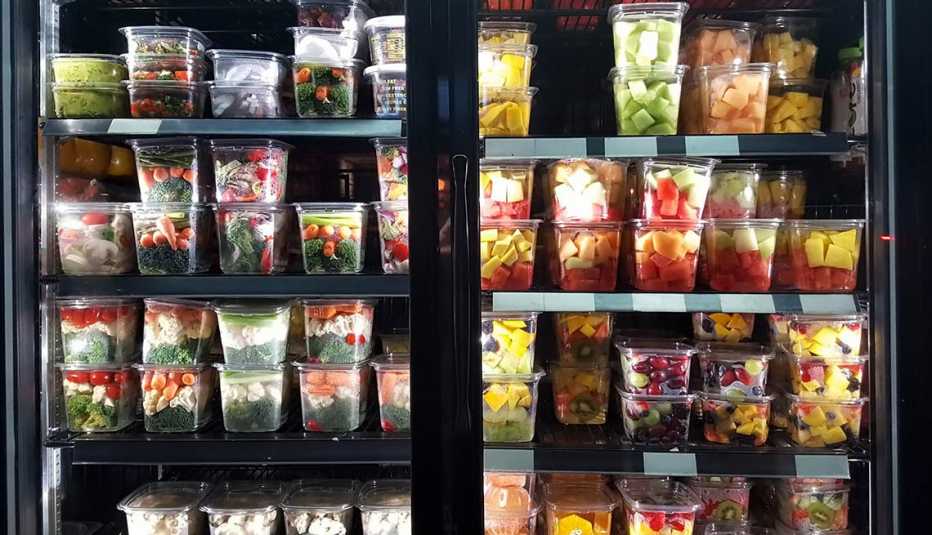AARP Hearing Center


When you're on the go, it can be hard to eat healthy. Some days, whether you're behind the wheel or on foot, the most convenient option for a quick meal or snack can be a convenience store. But just because you're turning to a 7-Eleven, Wawa or Circle K for sustenance doesn't mean you need to succumb to super-size sodas and chips. Healthier alternatives are available on the very same convenience-store shelves — if you know where to look.
We spoke with Joan Salge Blake, a registered dietitian and clinical associate professor of nutrition and health sciences at Boston University, who suggested healthier choices to make when you're in a rush. Check out the list of snacks you should be able to find at a convenience store that are surprisingly good for you.
1. Jerky
The convenience-store staple that has fueled countless road trips is a good source of protein, which you need throughout the day to increase muscle synthesis. Look for lean beef or pork jerky. Note, however, that dehydrated meats are high in sodium, with some jerky exceeding 1,000 milligrams per serving. Blake says that daily sodium intake should not exceed 2,300 milligrams (1,500 milligrams is ideal), so if a snack is high in sodium, make sure to balance it out with low-sodium meals the rest of the day.
2. Cereal
Breakfast doesn't have to be in the morning. Seek out a single-serving package of whole-grain cereal for a fiber fix, and pair it with skim or 1 percent milk for calcium, vitamin D and potassium. The combination makes for a healthy snack or light meal any time of day.
"Most Americans are not getting enough fiber in their diet,” Blake observes. “As you get older you need less calories to maintain your weight, so you really need to make sure every bite is giving you good nutrition and some high fiber."



































































More on health
Decoding the New Food Labels
You'll see bigger serving sizes and major shifts on sugar and fats in 2020Eat Healthy at These Fast-Casual Chains
Our dietitian lines up the best food choices at Chipotle, Panera and other popular restaurantsDump the Ultraprocessed Foods
Healthier do-it-yourself options could help you drop a pound a week